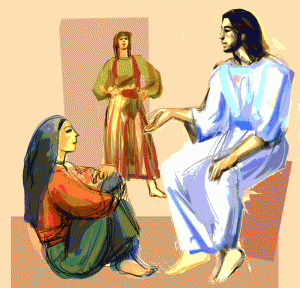Isaiah 58:1-9
This text is used for the Lectionary Year A on February 5th, 2017.
 How many of us would love to have a congregation that God described as a people who “seek me and delight to know my ways…they delight to draw near to God.” (Isaiah 58:2)? This congregation would certainly fill the pews and sing, joyously, week in and week out. They would be attentive listeners to our sermons, and they would pray diligently during the times of communal prayer. It would be easy to show up every week with a fresh word to tell these people because they would surely deposit praise upon praise on us following each service. Isaiah’s congregation has returned from exile and resides once again in Jerusalem – this is a people happy to worship. However, even the best of churches have those people who continually wonder why they’re doing all of this wonderful worship and yet God is not heaping praise and reward on them. This is not to say that these churches are selfish and self-righteous, but rather that we have been formed into people who expect our great efforts to be rewarded in ways congruent with our own expectations. If I put in a hard day’s work, I would expect a payment equal to that work. Worship, though, is not about us. At least it is not about performing in order that I may receive some due payment from God. This is what God speaks to the people in Jerusalem through the mouth of Isaiah. This is what God is speaking to us today.
How many of us would love to have a congregation that God described as a people who “seek me and delight to know my ways…they delight to draw near to God.” (Isaiah 58:2)? This congregation would certainly fill the pews and sing, joyously, week in and week out. They would be attentive listeners to our sermons, and they would pray diligently during the times of communal prayer. It would be easy to show up every week with a fresh word to tell these people because they would surely deposit praise upon praise on us following each service. Isaiah’s congregation has returned from exile and resides once again in Jerusalem – this is a people happy to worship. However, even the best of churches have those people who continually wonder why they’re doing all of this wonderful worship and yet God is not heaping praise and reward on them. This is not to say that these churches are selfish and self-righteous, but rather that we have been formed into people who expect our great efforts to be rewarded in ways congruent with our own expectations. If I put in a hard day’s work, I would expect a payment equal to that work. Worship, though, is not about us. At least it is not about performing in order that I may receive some due payment from God. This is what God speaks to the people in Jerusalem through the mouth of Isaiah. This is what God is speaking to us today.



